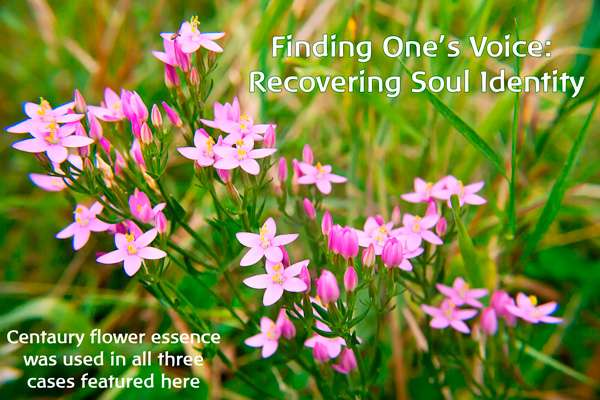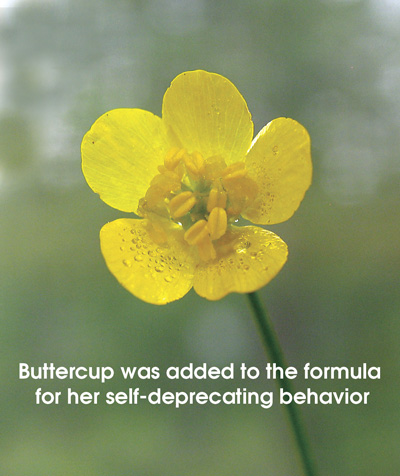|
Editor’s note: Kathleen Anderson has a Masters Degree in Counseling Psychology and is certified as a Drug/Alcohol counselor (CADC II). She reported the following cases which reflect an overarching theme in regard to older people from dysfunctional families recovering their dignity and finding their true “voices.” These cases illustrate how one can change a situation like narcissism in a partner by changing oneself, becoming more aware of dynamics, taking a firm stand, etc. BW – Setting healthy boundaries in a marriage of 45 years BW was an extremely depressed man in his mid 60s. B came to have sessions because of his depression. He reported that he wanted “more power to deal with his negative spouse; better ability to participate in work environment despite the stress of it; able to cope better with difficult personal relationships.” His doctor told him that he should have therapy accompanied by Paxil, about 60 mg. He needed to have weekly psychotherapy per his doctor. I started him with Five-Flower Formula and Willow . He did very well with them. His problem was depression caused by the fact that his wife is a narcissist. He didn’t know that at the time he married her. They had been married for 45 years and he had been giving in to her for all of those years. He was extremely codependent, had become very depressed, and he was shut down. What he had to work on was the fact that first of all, this was his wife and most likely she would not change; she was refusing any kind of therapy. So, it was the way it was… BW didn’t even know about or understand narcissism, so I educated him about the condition. I wanted him to have insight into his own giving in to her, his own codependency. I gave him Black-Eyed Susan, Centaury, Rock Water, Willow and the Five-Flower Formula . It was to help him improve setting proper boundaries and to not tolerate the abuse. His wife had, in his words, “the propensity to verbally attack him.” He noticed that after a short while, within two months, he had an increased awareness of her unacceptable behavior. He said, “more importantly, I noticed the confidence to directly deal with such behavior and the ability to do it with less anger and emotion than before taking the formula.” He was calm, and he was firm. I asked him if the flower essences had stirred up any new issues in his life and he said, “They stirred up confidence that was lacking the entire time.” They also triggered him to be calm. He realized that it had been going on for 45 years and he had the clarity now. In the past, he had continually just given in to her. Other people noticed his changes as well; he said fellow employees at work and people at church commented on his marked differences, particularly noticing his new zest for life and much more positive outlook and demeanor. He wrote to me at one point when he was starting to get low on his formula: “These drops are so effective, I’m taking 4 Paxils a week instead of 7, I plan on cutting down even further in the near future. The impact of these drops on my life is significant, measurable and probably unbelievable to most. Thank you for the drops…please do not stop making them for me.” I saw him for a couple of years, continuing with the formulas and he started setting very good boundaries with his wife; he had figured her out. She changed because he was being firm with her. Consequently, she slipped into a kind of depression, and didn’t get off the couch for about a month. I encouraged him to not give in to it because it was manipulation. For the most part, he didn’t give in to her. He was continuing to do really well.
The sequence of formulas was as follows:
Five-Flower Formula, Willow and Centaury Five-Flower Formula, Willow, Centaury , and I added Black-Eyed Susan for him to have insight into his codependency/enabling behaviors, and Rock Water to help him with his boundaries. Then I added Mountain Pride to give him courage. Instantly he seemed to be really on top of the world. He did so well, he completely stopped taking Paxil. BG – Finding her voice and dignity in a 60-year relationship BG is a sweet lady, a very young 81. She came to me because she was depressed and filled with fear. She had been born in a home where both parents were narcissistic. She had been married to a man for 60 years who is significantly a narcissist and controlling. He was the king of the castle and she didn’t have much of a voice; she stifled her needs, desires and feelings. That was true even in her childhood. She was imploding, was very depressed, and had a lot of anxiety. She started the following formula:
Larch
She said that she started to speak up for herself rather than just caving in. She realized also that she had missed that voice during all of her life. She had better improvement of her self-image, she began to express herself, there was a reduction in her anxiety, and she was more positive. Next, I added Buttercup to the formula for her self-deprecating behavior. Subsequent formulas included Centaury , Cerato (to accept her inner knowing rather than looking to me for answers), Black Cohosh , Borage (remedy for courage), Evening Primrose (her parents were pregnant with her before their marriage; rejection and judgement from others and to get her voice back).
BG wrote to me: “I want you to know that I won an argument this morning. I knew I was right. He just kept telling me something he knew; but I know he didn’t. He threw up his hands—'I give up, I can’t get anything through to you.’ And then he did go back and saw that I was right. He didn’t say anything. Anyway, I really felt good about it. This is a first for me. I usually just give up and say, okay, and do it your way…” BG had an epiphany. There was much improvement in her self-image, and greater clarity. She started to speak up for herself and began noticing what she does habitually for many years, over 60 years of doing the same thing. Two of her very close friends said they observed that she was more relaxed, happier, and had a sense of humor that they had not seen much of before.
DD – Recovering personal voice, confidence and self-assurance
DD lacked confidence in social arenas and became extremely self-critical. This was evident with her siblings and mother as well as at church. When she shared openly from her heart she would berate herself for hours afterwards, hearing a critical spirit within. Consequently, she lost her voice for fear of perceived rejection. She reported instances of feeling dissociative, "in a fog," as she described it. She was having flashbacks when I first met her. Memories had begun to flood her conscious mind and she was unable to determine if they were real.
DD is the oldest of three children born to a mother with narcissistic traits and an alcoholic father. She was conceived before birth when her parents were only 18. Being in the Bible belt of Illinois, there was a lot of judgment surrounding her birth. DD stated that her mother did not cuddle her or give her much praise and encouragement. The household was "perfect" to the outside community. Her father was often the "life of the party" and was active in their church. Her grandmother (paternal) was her saving grace; she gave DD lots of affection and attention. She offered DD the necessary attachment and bonding that was not provided by her parents. They lived right next door until age 9 when the family moved to Napa, California.
Initial formula:
As a result of the first formula, DD gained immense awareness and insight into her own repressed anger. I noted:
Validation of past hurts. Began to say 'no' to others; made boundaries with others for the first time. Became aware that others tended to take advantage of her and she used to just roll with it. Codependency insight.
Pink Monkeyflower
- To begin treatment for her tendency to shrink away and dissociate due to trauma: "The Pink Monkeyflower type withdraws in a way that is more pronounced than ordinary shyness, for the soul is attempting to cover deeply internalized wounds from the past. Most frequently, early childhood trauma or abuse — or exploitative and debasing experiences at any phase in life — are the hidden factors in such behavior." (Kaminski and Katz, 2003)
After using the formula above, DD was less depressed and more capable of speaking her mind to her siblings. She spoke of several interactions when she did not dissociate or "go away" in their strong presence. This is partly to do with her starting Pink Monkeyflower (Kaminski and Katz, 2004). She was allowing her suppressed feelings of anger emerge, yet in an appropriate way; she was assertive with her siblings on several occasions.
DD's mother had grown quite dependent on her and there seemed to be a trust in her daughter. Whereas DD came into treatment speaking as the victim of her mother's narcissism, she now spoke kindly of her and seemed genuinely concerned for her well-being.
DD continued to be more assertive in social settings, especially in regard to her siblings.
Later, DD reported she responded in a group situation without self-deprecation.
Buttercup
was then selected "to recognize and honor the inner value and worth of who they truly are." (Kaminski and Katz, 2004).
DD reported: "I now have a backbone!"
Cerato
had given her an inner confidence (Kaminski and Katz, 2004), essential for leadership in the family system as head Trustee.
DD is able to stand up against the criticism of her siblings during the process of tending to her aging mother.
|

To install this Web App in your iPhone/iPad press ![]() and then Add to Home Screen.
and then Add to Home Screen.




 After raising three daughters and seeing them launched in college and careers, Kathleen went back to graduate school. She has since been licensed as a psychotherapist for 8 years. In addition to a private practice, Kathleen has worked in the field of alcohol and drug treatment facilities for 14 years. Kathleen attended the FES Professional Course in 2014 and added flower essence therapy in conjunction with her practice.
After raising three daughters and seeing them launched in college and careers, Kathleen went back to graduate school. She has since been licensed as a psychotherapist for 8 years. In addition to a private practice, Kathleen has worked in the field of alcohol and drug treatment facilities for 14 years. Kathleen attended the FES Professional Course in 2014 and added flower essence therapy in conjunction with her practice.
